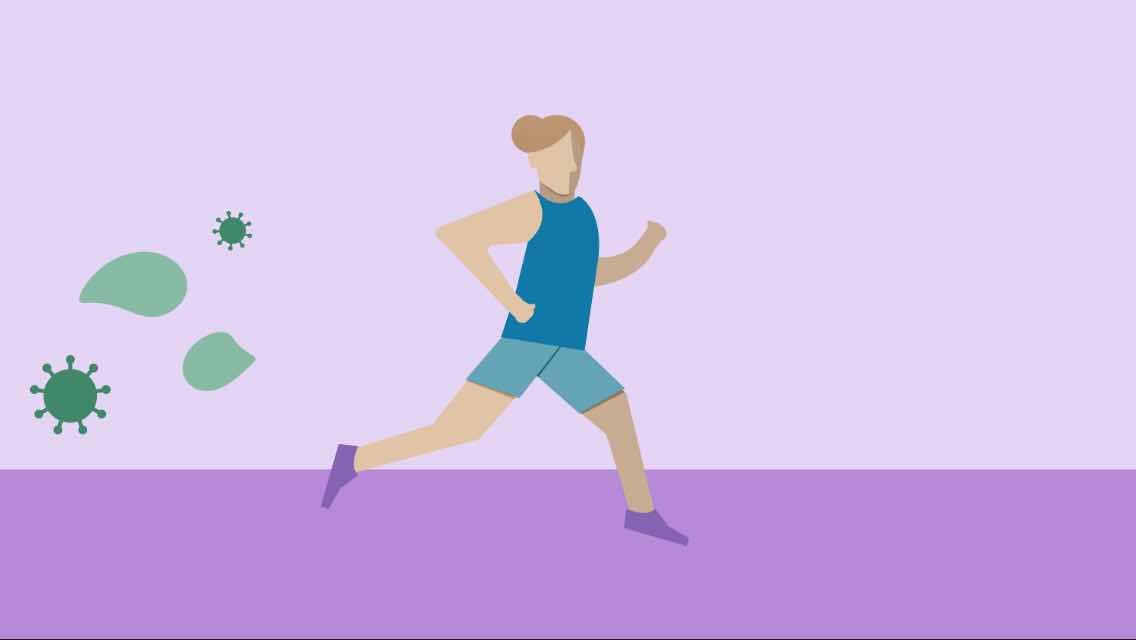One of our best defenses against the onslaught of perilous viruses is a strong immune system. When it comes to exercise, however, scientists have long debated whether it helps or hinders our ability to fend off sickness.
The controversy arose in the 1980s, when researchers found that certain marathon runners suffered from infections in the days following races. The notion that exercise suppresses the immune system has persisted ever since, despite flaws in the original research and subsequent surveys showing that marathoners actually missed fewer days of training because of illness than less-active athletes did.
Pro-exercise evidence has been mounting ever since. A 2005 study, for instance, noted that when infected with the influenza virus, mice that ran for 20 to 30 minutes daily for three days were more likely than their sedentary counterparts to survive.
More recently, researchers have refuted the so-called open-window theory, which argues that a vigorous workout causes immune cells to flood the bloodstream and then disappear, leaving the body vulnerable to pathogens.
Subsequent studies show that while there’s a reduction in the frequency and function of immune cells in the blood following vigorous, prolonged exercise, this doesn’t reflect immune suppression; instead, it’s part of “a heightened state of immune surveillance and immune regulation driven by a preferential mobilization of cells to peripheral tissues.”
“There is no or limited evidence for exercise directly increasing the chance of developing any kind of viral infection,” University of Bath health-science professor James Turner, PhD, tells the New York Times. “So, it is safe to exercise, despite concerns about the coronavirus.”
It might not be prudent, though, to embark on an intense fitness regimen if you’re recovering from COVID-19, according to an analysis of recent studies published in May by the American College of Cardiology.
“There remains controversy as to whether more exhaustive and prolonged exercise negatively affects the immune system and increases susceptibility to infection,” lead study author Michael Scott Emery, MD, writes. “Given that COVID-19 has numerous direct and indirect effects on the heart, questions remain regarding the safety of exercise in those exposed to COVID-19 or who are recovering.”
So, if you’ve been active, stay the course; if you’re just resuming your fitness groove, take it slow. Either way could help keep the bugs at bay.
This originally appeared as “Exercise: A Proven Immune Booster” in the September 2020 print issue of Experience Life.




This Post Has 0 Comments